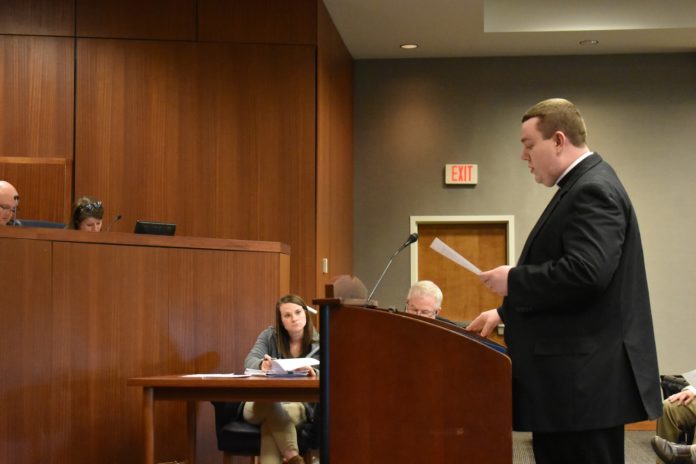
CULLMAN, Ala. – On Monday evening, the City of Cullman Planning Commission approved a conditional use permit for Rock the South (RTS) to use its proposed new location at the intersection of County Roads 469 and 436 on May 31 and June 1, contingent upon the issuance of an event permit by the City of Cullman. The request specified that “no other special events are proposed for the property outside of these dates,” and that:
- parking areas and pedestrian walkways would be unpaved and continue to be grass
- onsite restroom facilities and sanitation pickup would be provided by a private entity
- water would be provided by Cullman County
- electricity would be provided by the Cullman Electric Cooperative, and by onsite generators
- “service provided by RTS festival over the past seven years will also be provided at this proposed site”
In official City department responses to the request, Cullman Fire Rescue noted that talks about fire and safety issues were ongoing with RTS, but that it would ensure that at least minimum standards of current fire and safety codes are met. The city engineer noted, “Per submission letter, there will not be any permanent modifications made to the property per ordinance, as meets conditional use.”
Head of 46 Entertainment and RTS producer Nathan Baugh was present, along with a team of engineers who are developing the plan and site for the event, to make the request in person, and to answer questions from the commission.
Heritage Village new construction phase challenged by St. Bernard Abbey
A larger portion of the commission meeting was given to consideration of a request from Brett Barker of Barker Brothers Construction to approve phase five of construction in the Heritage Village subdivision off Welti Road. The neighborhood was the subject of controversy at both commission and Cullman City Council meetings in 2018, mainly over drainage issues.
When the floor was opened to anyone who might oppose the request, Br. Paschal Pautler, secretarial assistant to Abbot Cletus Meagher at St. Bernard Abbey, rose and approached the podium. The Heritage Village subdivision adjoins Abbey land, and Pautler laid out a set of complaints that did not so much oppose the new construction as it did call for certain issues to be addressed by the developers before moving into a new phase.
Pautler passed out photos taken on the Abbey campus where it meets Heritage Village, then set forth the following claims:
- Water drainage from Heritage Village has been diverted into a single culvert that discharges onto the Abbey property and has created a “substantial ditch” that hinders access to parts of the property.
- Phase five drainage will connect into that same culvert, increasing the problem.
- Water runoff from the developed subdivision may exceed pre-development runoff.
Pautler concluded, “St. Bernard respectfully requests that phase five of the final site plan for Heritage Village be stopped until all issues related to the drainage are fully and completely resolved for all existing and future phases of Heritage Village.”
The Abbey representative then shared an additional concern about privacy and security, saying that developers were supposed to create a buffer zone between the subdivision and Abbey property, but did not do so, leading to residents of the subdivision entering the Abbey campus. He indicated evidence of encroachment by showing photos of visible foot trails that appear to come from the subdivision, and of a treehouse constructed on the Abbey property adjoining the subdivision by an unknown person.
Commission President Mike Voss indicated that certain drainage features included in the original Heritage Village plans from 2004 had not been installed. Furthermore, City inspectors had visited the site earlier on Monday and saw conditions of erosion that led them to concur with the Abbey staff about the drainage issue.
Barker agreed to install outlet protection on the Heritage Village property to lower the velocity of water coming out of the culvert and stop additional damage to the Abbey grounds, saying that the process was already underway. City Attorney Roy Williams told the commission that the damage to the Abbey property itself could not be dealt with by the City, but would have to be settled between the two property owners, either by agreement or in court. Barker further agreed to install a wood plank privacy fence between the two properties.
The motion that finally came to the floor was to approve phase five contingent upon the city engineer’s approval of water drainage calculations, installation of outlet protection to prevent further erosion on the Abbey property and the construction of a buffer between the properties. The commission passed this motion.
Watch Monday night’s meeting here.
Copyright 2019 Humble Roots, LLC. All Rights Reserved.





















